US vetoes latest UN Gaza cease-fire effort
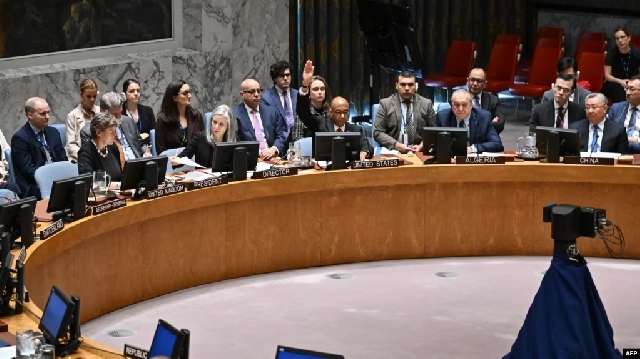 U.S. Deputy U.N. Ambassador Robert Wood raises his hand to veto a draft resolution calling for a cease-fire in Gaza, during a United Nations Security Council meeting at U.N. headquarters in New York City, on Nov. 20, 2024
U.S. Deputy U.N. Ambassador Robert Wood raises his hand to veto a draft resolution calling for a cease-fire in Gaza, during a United Nations Security Council meeting at U.N. headquarters in New York City, on Nov. 20, 2024
The United States blocked a U.N. Security Council resolution Wednesday, demanding a permanent cease-fire in Gaza and the release of Israeli hostages, saying the proposed language would have sent the wrong message to Hamas.
“The United States worked for weeks in good faith to avoid this outcome,” U.S. Deputy U.N. Ambassador Robert Wood said after the vote. “We made clear throughout negotiations, we could not support an unconditional cease-fire that failed to release the hostages, because, as this council has previously called for, a durable end to the war must come with the release of the hostages. These two urgent goals are inextricably linked.”
The U.S. veto was its fourth on Gaza since the war between Israel and Hamas started 14 months ago.
The failed resolution “demands an immediate, unconditional and permanent cease-fire to be respected by all parties; and further reiterates its demand for the immediate and unconditional release of all hostages.”
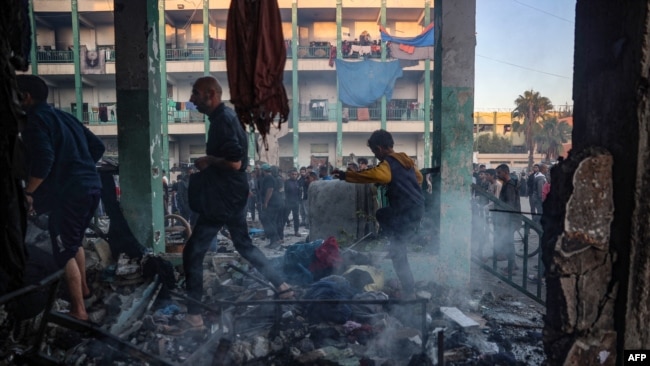 | Displaced Palestinians walk amid the debris following an Israeli strike that hit a U.N.-run school where people had taken refuge, in the Nusseirat refugee camp in the central Gaza Strip on Nov. 20, 2024
| Displaced Palestinians walk amid the debris following an Israeli strike that hit a U.N.-run school where people had taken refuge, in the Nusseirat refugee camp in the central Gaza Strip on Nov. 20, 2024
The text was drafted and put forward by the 10 elected members of the Security Council, who have expressed growing frustration over the past months at the council’s inability to take decisive action to end the war and free the hostages held by Hamas.
Wood said the proposed resolution “would have sent a dangerous message to Hamas: there's no need to come back to the negotiating table.”
“This resolution is trying to restore life, to save lives. It's not a dangerous message,” the Palestinian deputy ambassador Majed Bamya told the council. “The draft resolution is not a dangerous message. This veto is a dangerous message to Israel that it can continue executing its plans — the very plans you oppose — and the messages we send do matter, and that is the wrong message at the worst possible time. Israel is responsible for the Palestinian civilians it kills. It cannot be absolved of that responsibility.”
The Palestinian envoy said that while the proposed cease-fire would not solve everything, it would be a first step and vetoing it is unjustifiable when atrocities are taking place.
“I truly do not understand, you're saying we cannot be for an unconditional cease-fire,” Bamya said, emotion rising in his voice. “What that means, in effect now, is that we are for a war. You're saying we cannot be for an unconditional cease-fire that does not release the hostages. Is this war releasing the hostages? Is it? Is it even trying to release the hostages?”
Israel’s ambassador said the proposed text would have sent the message that terrorists can act with impunity.
“The resolution brought before this chamber was not a path to peace, it was a road map to more terror, more suffering and more bloodshed,” Danny Danon said. “Many of you attempted to pass this injustice. We thank the United States for exercising its veto, for standing on the side of morality and justice, for refusing to abandon the hostages and their families.”
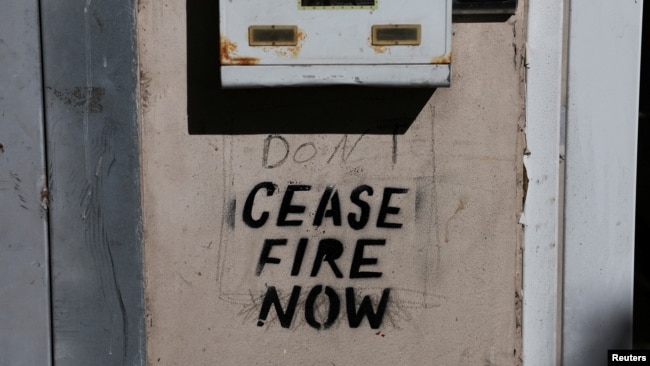 | Graffiti on a wall reads "cease fire now" with the word "don't" added over it, in Tel Aviv, Israel, Oct. 24, 2024
| Graffiti on a wall reads "cease fire now" with the word "don't" added over it, in Tel Aviv, Israel, Oct. 24, 2024
Council members expressed their disappointment that the resolution was not adopted, and Algeria, which represents the Arab group of nations on the 15-nation Security Council, said it would return soon with an even stronger resolution.
“This war represents everything the U.N. Charter stands against. We regret the veto was cast,” said Slovenia’s deputy ambassador Ondina Blokar Drobic.
“Our collective efforts to end the hostilities will not stop,” Guyana’s Ambassador Carolyn Birkett, who led the elected members effort, told reporters after the vote, flanked by her colleagues.
“Once more, the E10 [elected 10 members] is underscoring to the international community, and more importantly to the hundreds of thousands of innocent civilians who continue to bear the cost of these hostilities, including those still held hostage and their loved ones, that we are deeply conscious that the Security Council bears the primary responsibility for the maintenance of international peace and security,” she said.
She said they would continue to try to facilitate council unity, adding “too many lives have already been lost.”
“It is shameful that the United States has once again used the veto to block consensus on a life-saving cease-fire, while they continue to approve deadly arms transfers to fuel the violence and humanitarian catastrophe,” Brenda Moyfa, head of Oxfam’s New York office, said in a statement.
Conflict continues
Meanwhile, in Gaza, the war grinds on.
Local health officials said Wednesday a series of Israel attacks killed at least 17 Palestinians in the enclave.
In one attack, an Israeli strike hit a house in the Jabalia area of northern Gaza, killing at least 12 people.
The Israeli military also reported that one of its soldiers was killed and another wounded during fighting with Hamas militants in northern Gaza.
In southern Lebanon, where Israeli forces and Hezbollah militants have been engaged in all-out fighting since Israel invaded on October 1, the Lebanese military said Wednesday one of its soldiers was killed by Israeli fire.
A Lebanese military statement said Israeli forces struck a Lebanese army vehicle. The attack came a day after the Lebanese military said Israeli forces hit one of its positions in the Sarafand area of southern Lebanon, killing three soldiers.
A senior U.S. diplomat expressed hope Tuesday about a possible cease-fire agreement that would end fighting between Israel and Iran-backed Hezbollah.
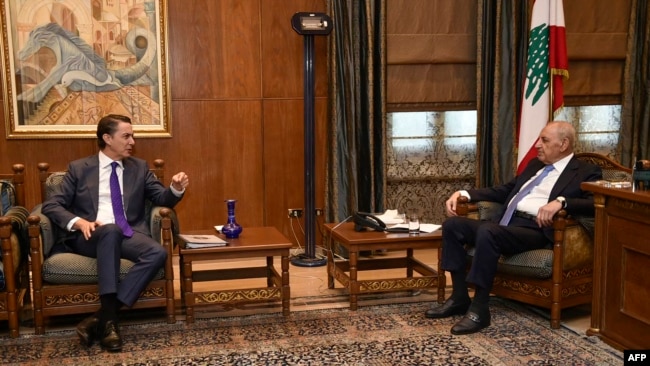 | U.S. special envoy Amos Hochstein, left, meets with Lebanese Parliament Speaker Nabih Berri in Beirut, Nov. 19, 2024
| U.S. special envoy Amos Hochstein, left, meets with Lebanese Parliament Speaker Nabih Berri in Beirut, Nov. 19, 2024
"We have a real opportunity to bring this conflict to an end," said Amos Hochstein, President Joe Biden’s special envoy, adding that he had held "very constructive talks" with Lebanese officials, including Parliament Speaker Nabih Berri, a Hezbollah ally mediating for the militants.
Hochstein said the differences between the two sides had narrowed and an end to the conflict was "within our grasp."
The Lebanese government and Hezbollah have agreed to a proposal that was submitted last week, and both made some comments on the content, Ali Hassan Khalil, an aide to Berri, told Reuters on Monday. But Israeli Prime Minister Benjamin Netanyahu said Israel would continue to conduct military operations against Hezbollah even if a cease-fire is reached.
"The most important thing is not [the deal that] will be laid on paper," Netanyahu told Israel's parliament.
"We will be forced to ensure our security in the north [of Israel] and to systematically carry out operations against Hezbollah's attacks ... even after a cease-fire" to keep the group from rebuilding, he said.
Netanyahu also said there was no evidence Hezbollah would respect a cease-fire.
The draft agreement would remove Israeli ground forces from Lebanon and push Hezbollah forces about 32 kilometers away from the Israeli border. More Lebanese troops and U.N. peacekeepers would be sent to the buffer zone in southern Lebanon as part of the deal, The Associated Press reported.
Hezbollah began its campaign after its ally Hamas launched its Oct. 7, 2023, terror attack on Israel. About 1,200 Israelis were killed, and 250 were taken hostage. About 100 of the hostages have yet to be released, although a third of them are believed to be dead.
Following the attack, Israel began a campaign to eliminate Hamas in Gaza that has killed about 44,000 people, according to the Gaza health ministry.
Since the fighting with Hezbollah began, more than 3,500 people in Lebanon have been killed, according to authorities. Most of the fatalities have occurred since late September.
Hamas and Hezbollah have been designated as terror groups by the United States, the U.K. and other Western countries.
VOA United Nations Correspondent Margaret Besheer contributed to this report. Some information for this report came from The Associated Press, Reuters and Agence France-Presse.
Source: voanews.com
Trending News

Slap-happy policeman interdicted
11:08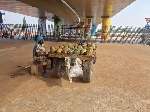
Sahadatu Seidu: Coconut hawker resumes 'selling point' at Flower Pot interchange, divides opinion
17:43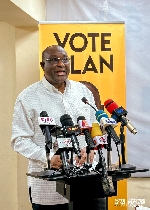
Alan has an issue with Bawumia overtaking him – Ofosu Nkansah
12:51
Research reveals significant underreporting of road crash deaths in Ghana
10:46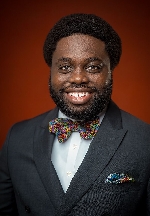
Vote Bawumia for continuity – Kow Essuman to Ghanaians
00:00
Things have been tough under NPP gov’t, it’s time for change – Mahama tells Kyebi residents
07:35
3k educational projects have been initiated and completed since 2017 - Gov't
10:27
Record number of Ghanaians studying in the United States as new report shows 45% growth over previous year
14:05
My husband is honest, he has solutions to Ghana’s problems – Samira Bawumia
22:16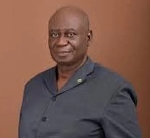
NDC Vice Chairman warns Ghanaians against NPP’s alleged deceptive tactics ahead of December polls
09:14



